Neuromechanics meet deep learning: new opportunities and avenues for robotics and human-robot interaction
Join us at ICRA in London, UK
Where: ExCeL London, London, UK
When: Monday, May 29th
The ICRA 2023 motto is “Embracing the future – Making robots for humans” but Building robots for humans (exoskeleton, prosthesis or cobot) is complex as the neuromusculoskeletal system is able to elaborate dexterous movements and interact with complicated environments with ease.
Synthesis of such diverse behaviours in humans requires effective coordination between the central nervous system – where intelligent controllers are created by networks of billions of neurons – and the peripheral musculoskeletal system which translates the intentions into actions. Akin to the central nervous system, the field of Artificial Intelligence has been pursuing the emulation of intelligent behaviours via neural structures (Neural Networks). At the same time, and mostly independently, the biomechanics community has been developing in silico musculoskeletal model to understand peripheral actuation.
These new developments offer new avenues to better understand how movement is generated through these complex pathways in silico and how machines could seamlessly be integrated with it.
Via this workshop, we seek a platform for the experts in the field of artificial intelligence, neuromechanics and robotics to come together to share respective progress and deliberate joint opportunities.
Poster Presentations:
Phd and Master students are encouraged to participate via a poster presentation. Please send us an email (g[dot]v[dot]durandau[at]utwente[dot]nl) with a short explanation about your project and results. The best project will be able to present their research during the poster session.
PROGRAM:
| 08:30 - 08:35 | Opening remarks |
| 08:35 - 08:55 | Invited talk 1 |
| 08:55 - 09:15 | Invited talk 2 |
| 09:15 - 09:35 | Invited talk 3 |
| 09:35 - 09:55 | Invited talk 4 |
| 09:55 - 10:25 | Coffee break and poster session |
| 10:25 - 10:45 | Invited talk 5 |
| 10:45 - 11:05 | Panel discussion |
| 11:05 - 12:25 | Tutorial 1 |
| 12:25 - 12:30 | Conclusion |
Speakers:
 Seungmoon is an assistant professor in Mechanical and Industrial Engineering at Northeastern University. The goal of his lab is to better understand and model the motor control and biomechanics of human locomotion and to apply the obtained knowledge to rehabilitation engineering.
Seungmoon is an assistant professor in Mechanical and Industrial Engineering at Northeastern University. The goal of his lab is to better understand and model the motor control and biomechanics of human locomotion and to apply the obtained knowledge to rehabilitation engineering.
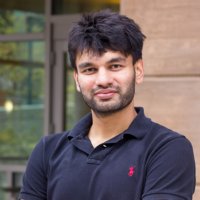
Pulkit is the Steven and Renee Finn Chair Assistant Professor in the Department of Electrical Engineering and Computer Science at MIT, where he directs the Improbable AI Lab. His research interests span robotics, deep learning, computer vision, and reinforcement learning. His work received the Best Paper Award at Conference on Robot Learning 2021 and the Best Student Paper Award at the Conference on Computer Supported Collaborative Learning 2011. He is a recipient of the Sony Faculty Research Award, Salesforce Research Award, Amazon Research Award, a Fulbright fellowship, etc. Before joining MIT, he co-founded SafelyYou Inc., received his Ph.D. from UC Berkeley, and Bachelor's degree from IIT Kanpur, where he was awarded the Directors Gold Medal.
Anne is currently leading the “Biomechanical Motion Analysis and Creation (BioMAC)” group.
Humans are the most fascinating machines in the world. Their efficiency of movement is unmatched by other bipedals while their control system is noisy and redundant and their actuators (muscles) are not that efficient at all. Anne think that once we understand why we walk the way we do, we can greatly advance technologies such as robotics and prosthetics and orthotics, as well as improve other human movements in for example sports.
Organizations:
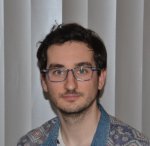 Guillaume Durandau is an assistant professor at McGill University at the department of Mechanical engineering in Canada. He obtained his engineering diploma at ISEN, Toulon, France and his master degrees at the University of Sherbrooke, Sherbrooke, Canada. During his master, he spend four months at the CINESTAV, Mexico. He also obtained during his master, the Mitacs Globalink Research Award. At the beginning of 2015, he started as a research assistant at the Institute of Neurorehabilitation Systems, UMG, Gottingen, Germany. In 2017, he started is PhD at the University of Twente, Enschede, the Netherlands. During his PhD, He won the Best Demo Award in 2018 at the 7th IEEE BIOROB, Best paper Published by IEEE-EMBS in 2017-18, 3rd place at the 7th Dutch Bio-medical Engineering Conference and the best thesis Award 2021 from the European Society of Biomechanics.
Guillaume Durandau is an assistant professor at McGill University at the department of Mechanical engineering in Canada. He obtained his engineering diploma at ISEN, Toulon, France and his master degrees at the University of Sherbrooke, Sherbrooke, Canada. During his master, he spend four months at the CINESTAV, Mexico. He also obtained during his master, the Mitacs Globalink Research Award. At the beginning of 2015, he started as a research assistant at the Institute of Neurorehabilitation Systems, UMG, Gottingen, Germany. In 2017, he started is PhD at the University of Twente, Enschede, the Netherlands. During his PhD, He won the Best Demo Award in 2018 at the 7th IEEE BIOROB, Best paper Published by IEEE-EMBS in 2017-18, 3rd place at the 7th Dutch Bio-medical Engineering Conference and the best thesis Award 2021 from the European Society of Biomechanics.
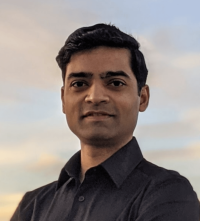 Vikash Kumar is a research scientist in Facebook AI Research (FAIR) and adjunct professor at CMU. He finished his Ph.D. from the University of Washington with Prof. Sergey Levine and Prof. Emo Todorov, where his research focused on imparting human-level dexterity to anthropomorphic robotic hands. He continued his research as a post-doctoral fellow with Prof. Sergey Levine at Univ. of California Berkeley where he further developed his methods to work on low-cost scalable systems. He also spent time as a Research Scientist at OpenAI and Google-Brain where he diversified his research on low-cost scalable systems to the domain of multi-agent locomotion. He has also been involved with the development of the MuJoCo physics engine, now widely used in the fields of Robotics and Machine Learning. His works have been recognized with the best Master's thesis award, best manipulation paper at ICRA’16, best workshop paper ICRA'22, CIFAR AI chair '20 (declined), and have been widely covered with a wide variety of media outlets such as NewYorkTimes, Reuters, ACM, WIRED, MIT Tech reviews, IEEE Spectrum, etc. (Webpage: http://vikashplus.github.io)
Vikash Kumar is a research scientist in Facebook AI Research (FAIR) and adjunct professor at CMU. He finished his Ph.D. from the University of Washington with Prof. Sergey Levine and Prof. Emo Todorov, where his research focused on imparting human-level dexterity to anthropomorphic robotic hands. He continued his research as a post-doctoral fellow with Prof. Sergey Levine at Univ. of California Berkeley where he further developed his methods to work on low-cost scalable systems. He also spent time as a Research Scientist at OpenAI and Google-Brain where he diversified his research on low-cost scalable systems to the domain of multi-agent locomotion. He has also been involved with the development of the MuJoCo physics engine, now widely used in the fields of Robotics and Machine Learning. His works have been recognized with the best Master's thesis award, best manipulation paper at ICRA’16, best workshop paper ICRA'22, CIFAR AI chair '20 (declined), and have been widely covered with a wide variety of media outlets such as NewYorkTimes, Reuters, ACM, WIRED, MIT Tech reviews, IEEE Spectrum, etc. (Webpage: http://vikashplus.github.io)
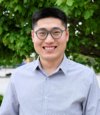 Huawei Wang, a postdoc researcher in the Neuromechanical Modelling and Engineering Lab. His interests are neuromusculoskeletal modeling; wearable measurement devices; real-time state estimation; and wearable robotics.
Huawei Wang, a postdoc researcher in the Neuromechanical Modelling and Engineering Lab. His interests are neuromusculoskeletal modeling; wearable measurement devices; real-time state estimation; and wearable robotics.
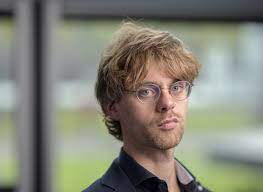 Massimo Sartori is a Professor and Chair of Neuromechanical Engineering at the University of Twente where he also direct the Neuromechanical Modelling & Engineering Lab. It's research focuses on interfacing wearable robotic technologies with the neuromuscular system for enhancing human movement. On these topics he is directing personal grants (e.g. ERC Starting Grant) and is PI in consortium-based projects (e.g. H2020-ITN Project SimBionics). He conducted his PhD (2009-2011) across the Universities of Padova (Italy), Western Australia (Australia) and Stanford (USA). He continued with a post-doc at the University of Göttingen (Germany, 2011) where he became Junior Research Group Leader in 2015. Since In April 2017 he joined the University of Twente as a tenure-track scientist where he is leading an expanding independent research group. Throughout his career he received awards (e.g. OpenSim Outstanding Research), was guest editor in academic journals (e.g. IEEE TBME, Front Comput Neurosci), and was Workshop Chair at leading congresses (e.g. IEEE BioRob 2018) in the field. He is currently Associate Editor at the IEEE Transactions on Neural Systems and Rehabilitation Engineering: https://www.embs.org/tnsre/associate-editors/. Moreover, he is a member of leading scientific societies spanning across the fields of robotics and biomechanics including: IEEE Robotics and Automation Society, IEEE Engineering in Medicine and Biology Society, IEEE International Consortium on Rehabilitation Robotics, and European Society of Biomechanics.
Massimo Sartori is a Professor and Chair of Neuromechanical Engineering at the University of Twente where he also direct the Neuromechanical Modelling & Engineering Lab. It's research focuses on interfacing wearable robotic technologies with the neuromuscular system for enhancing human movement. On these topics he is directing personal grants (e.g. ERC Starting Grant) and is PI in consortium-based projects (e.g. H2020-ITN Project SimBionics). He conducted his PhD (2009-2011) across the Universities of Padova (Italy), Western Australia (Australia) and Stanford (USA). He continued with a post-doc at the University of Göttingen (Germany, 2011) where he became Junior Research Group Leader in 2015. Since In April 2017 he joined the University of Twente as a tenure-track scientist where he is leading an expanding independent research group. Throughout his career he received awards (e.g. OpenSim Outstanding Research), was guest editor in academic journals (e.g. IEEE TBME, Front Comput Neurosci), and was Workshop Chair at leading congresses (e.g. IEEE BioRob 2018) in the field. He is currently Associate Editor at the IEEE Transactions on Neural Systems and Rehabilitation Engineering: https://www.embs.org/tnsre/associate-editors/. Moreover, he is a member of leading scientific societies spanning across the fields of robotics and biomechanics including: IEEE Robotics and Automation Society, IEEE Engineering in Medicine and Biology Society, IEEE International Consortium on Rehabilitation Robotics, and European Society of Biomechanics.
More about him via the UT Featured Scientist page.

 Seungmoon is an assistant professor in Mechanical and Industrial Engineering at Northeastern University. The goal of his lab is to better understand and model the motor control and biomechanics of human locomotion and to apply the obtained knowledge to rehabilitation engineering.
Seungmoon is an assistant professor in Mechanical and Industrial Engineering at Northeastern University. The goal of his lab is to better understand and model the motor control and biomechanics of human locomotion and to apply the obtained knowledge to rehabilitation engineering. 
 Guillaume Durandau is an assistant professor at McGill University at the department of Mechanical engineering in Canada. He obtained his engineering diploma at ISEN, Toulon, France and his master degrees at the University of Sherbrooke, Sherbrooke, Canada. During his master, he spend four months at the CINESTAV, Mexico. He also obtained during his master, the Mitacs Globalink Research Award. At the beginning of 2015, he started as a research assistant at the Institute of Neurorehabilitation Systems, UMG, Gottingen, Germany. In 2017, he started is PhD at the University of Twente, Enschede, the Netherlands. During his PhD, He won the Best Demo Award in 2018 at the 7th IEEE BIOROB, Best paper Published by IEEE-EMBS in 2017-18, 3rd place at the 7th Dutch Bio-medical Engineering Conference and the best thesis Award 2021 from the European Society of Biomechanics.
Guillaume Durandau is an assistant professor at McGill University at the department of Mechanical engineering in Canada. He obtained his engineering diploma at ISEN, Toulon, France and his master degrees at the University of Sherbrooke, Sherbrooke, Canada. During his master, he spend four months at the CINESTAV, Mexico. He also obtained during his master, the Mitacs Globalink Research Award. At the beginning of 2015, he started as a research assistant at the Institute of Neurorehabilitation Systems, UMG, Gottingen, Germany. In 2017, he started is PhD at the University of Twente, Enschede, the Netherlands. During his PhD, He won the Best Demo Award in 2018 at the 7th IEEE BIOROB, Best paper Published by IEEE-EMBS in 2017-18, 3rd place at the 7th Dutch Bio-medical Engineering Conference and the best thesis Award 2021 from the European Society of Biomechanics. Vikash Kumar is a research scientist in Facebook AI Research (FAIR) and adjunct professor at CMU. He finished his Ph.D. from the University of Washington with Prof. Sergey Levine and Prof. Emo Todorov, where his research focused on imparting human-level dexterity to anthropomorphic robotic hands. He continued his research as a post-doctoral fellow with Prof. Sergey Levine at Univ. of California Berkeley where he further developed his methods to work on low-cost scalable systems. He also spent time as a Research Scientist at OpenAI and Google-Brain where he diversified his research on low-cost scalable systems to the domain of multi-agent locomotion. He has also been involved with the development of the MuJoCo physics engine, now widely used in the fields of Robotics and Machine Learning. His works have been recognized with the best Master's thesis award, best manipulation paper at ICRA’16, best workshop paper ICRA'22, CIFAR AI chair '20 (declined), and have been widely covered with a wide variety of media outlets such as NewYorkTimes, Reuters, ACM, WIRED, MIT Tech reviews, IEEE Spectrum, etc. (Webpage:
Vikash Kumar is a research scientist in Facebook AI Research (FAIR) and adjunct professor at CMU. He finished his Ph.D. from the University of Washington with Prof. Sergey Levine and Prof. Emo Todorov, where his research focused on imparting human-level dexterity to anthropomorphic robotic hands. He continued his research as a post-doctoral fellow with Prof. Sergey Levine at Univ. of California Berkeley where he further developed his methods to work on low-cost scalable systems. He also spent time as a Research Scientist at OpenAI and Google-Brain where he diversified his research on low-cost scalable systems to the domain of multi-agent locomotion. He has also been involved with the development of the MuJoCo physics engine, now widely used in the fields of Robotics and Machine Learning. His works have been recognized with the best Master's thesis award, best manipulation paper at ICRA’16, best workshop paper ICRA'22, CIFAR AI chair '20 (declined), and have been widely covered with a wide variety of media outlets such as NewYorkTimes, Reuters, ACM, WIRED, MIT Tech reviews, IEEE Spectrum, etc. (Webpage:  Huawei Wang, a postdoc researcher in the Neuromechanical Modelling and Engineering Lab. His interests are neuromusculoskeletal modeling; wearable measurement devices; real-time state estimation; and wearable robotics.
Huawei Wang, a postdoc researcher in the Neuromechanical Modelling and Engineering Lab. His interests are neuromusculoskeletal modeling; wearable measurement devices; real-time state estimation; and wearable robotics. Massimo Sartori is a Professor and Chair of Neuromechanical Engineering at the University of Twente where he also direct the
Massimo Sartori is a Professor and Chair of Neuromechanical Engineering at the University of Twente where he also direct the